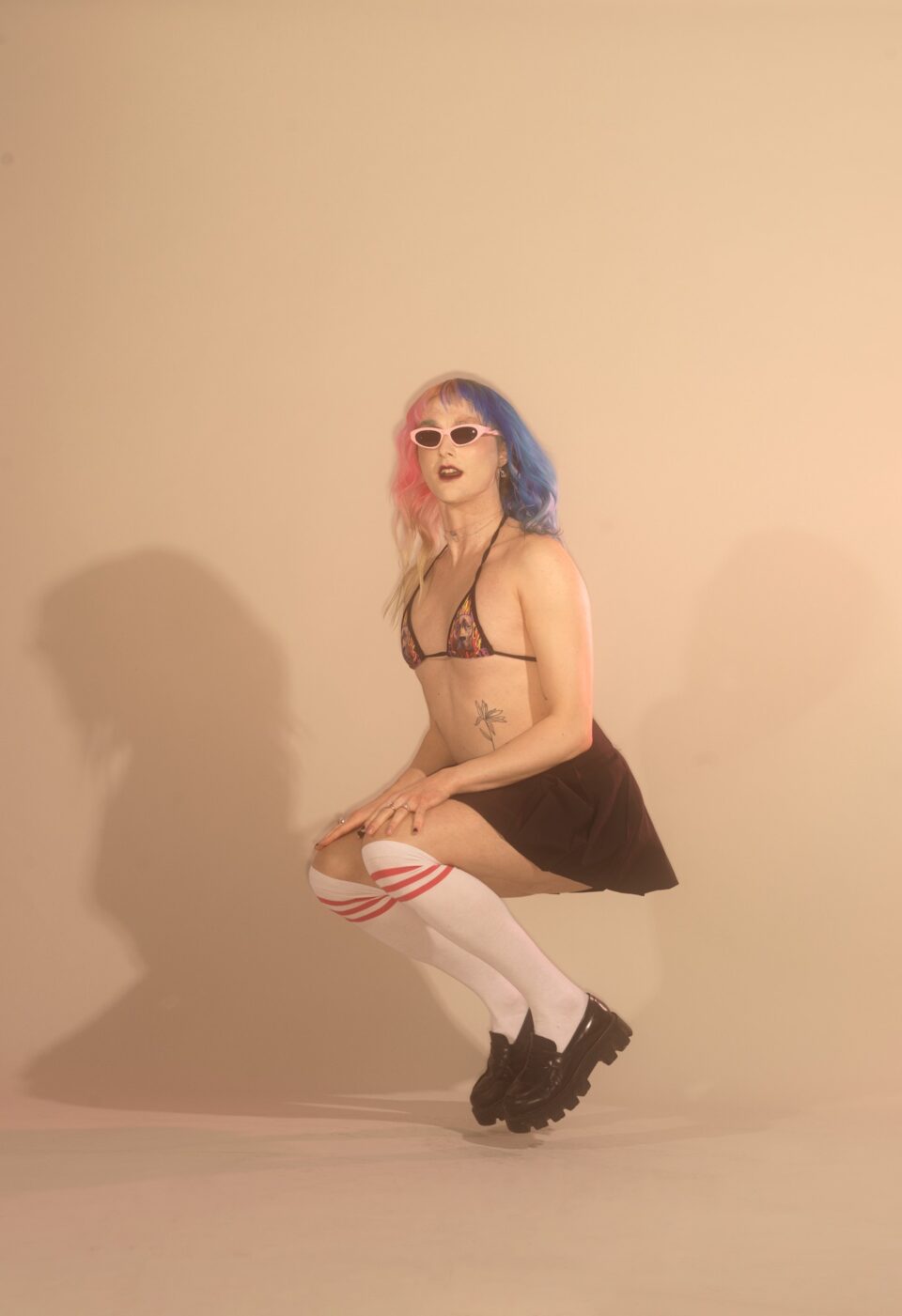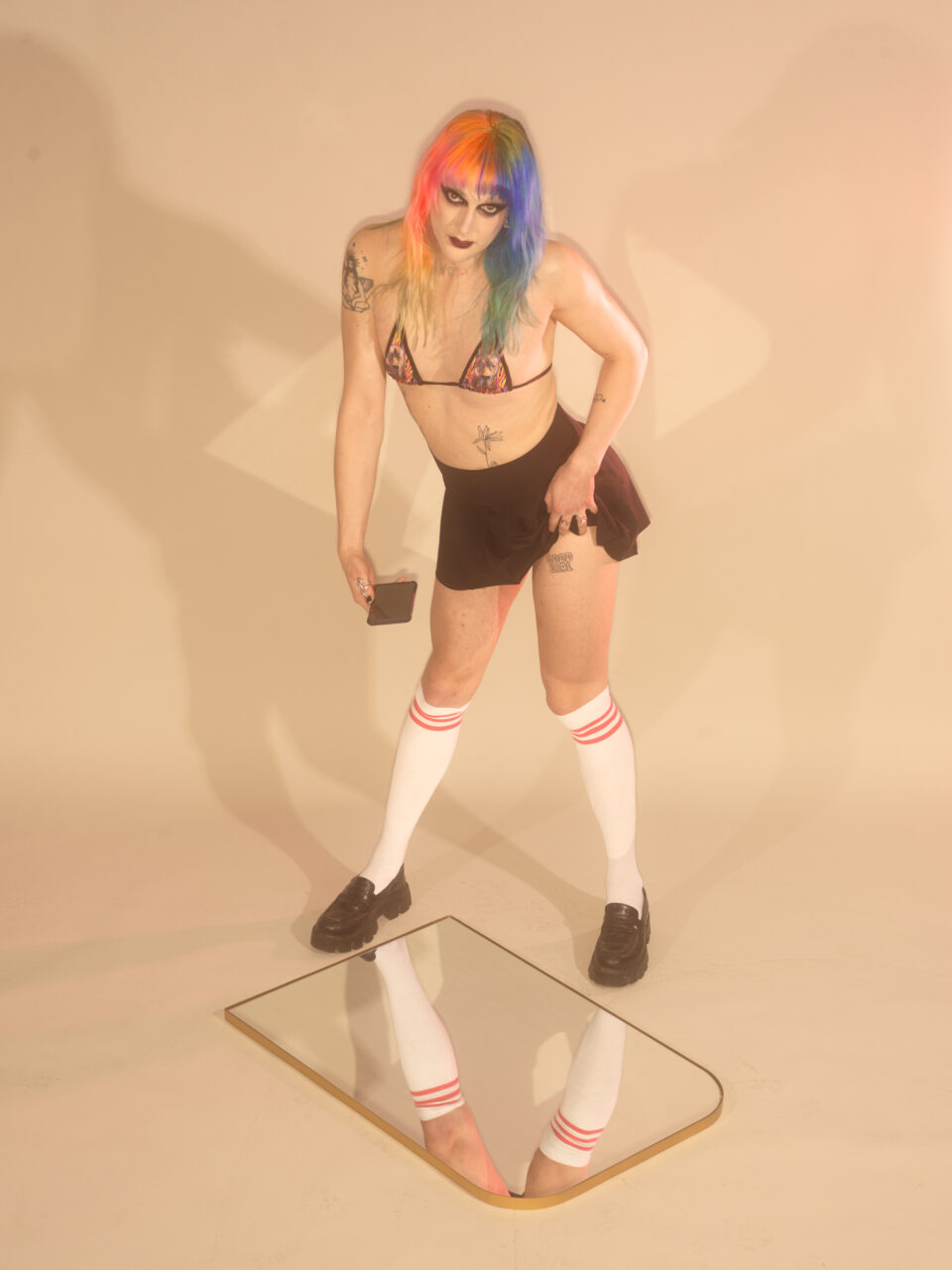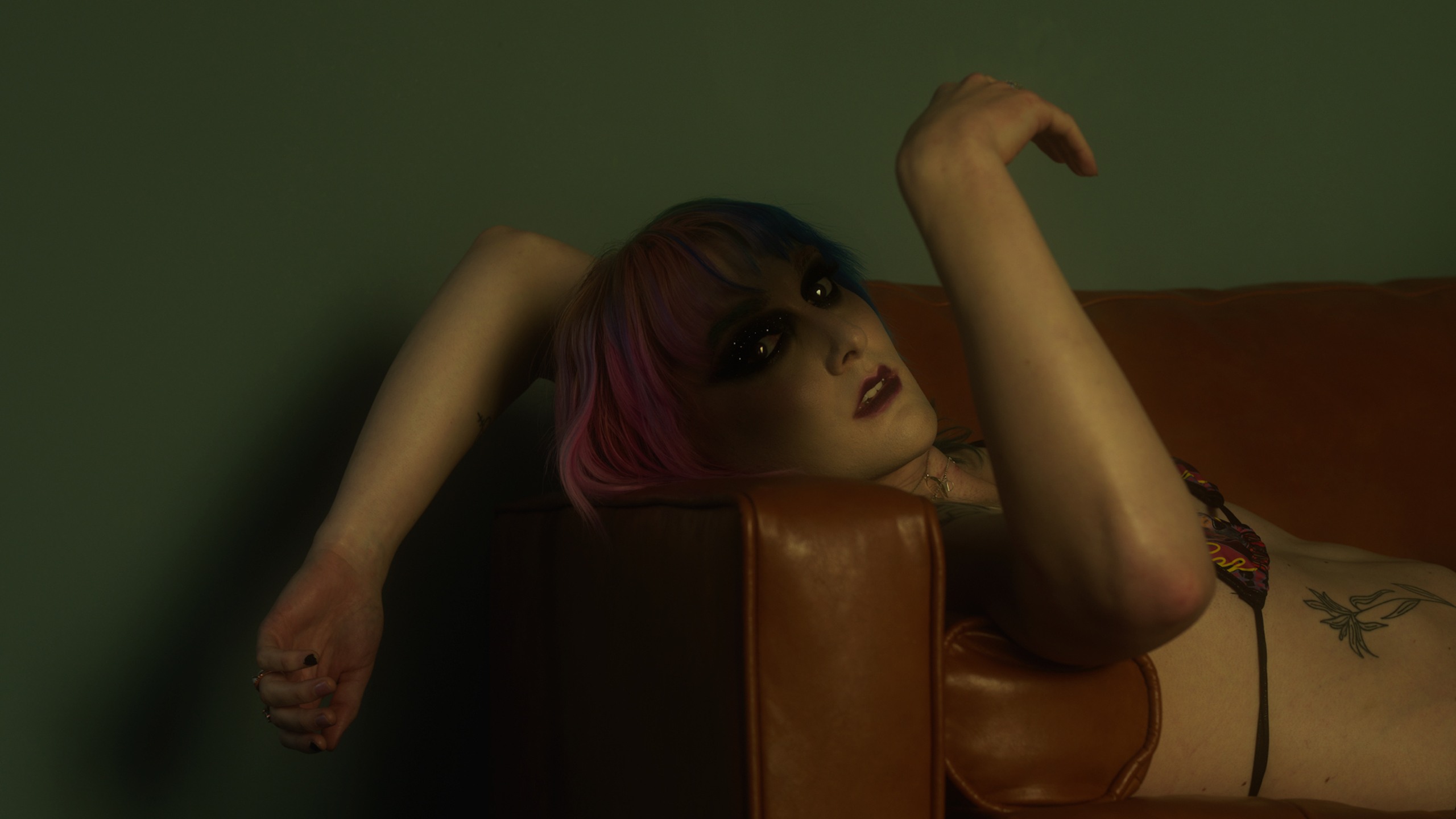jasmine.4.t’s rise from exciting Manchester upstart to the first British musician signed to Phoebe Bridgers’ Saddest Factory Records is the stuff of indie-rock fairytales. While opening some UK shows for Lucy Dacus, Jasmine was writing the demos that would become her sterling debut, You Are the Morning. Dacus expressed interest, and at the behest of friends, Jasmine eventually sent the demos her way. Lucy happened to be driving with Bridgers when the demos came in, and a short while later it was relayed back to Jasmine that Bridgers was on the phone with her Saddest Factory team, figuring out the best way to offer her a record deal.
Both Bridgers and Dacus expressed interest in producing the album, so rather than having to choose, Jasmine and the duo decided to bring on the full boygenius trio (rounded out by Julien Baker). While the fingerprints of each bg member can be heard on the project, this is truly Jasmine’s world—a vivid, heartbreaking, and ultimately beautiful portrait of coming out as trans and the communities forged when a story finally gets told the way its author always intended. Despite recording at Sound City Studios in LA, the album has a deft DIY touch, a knotty, almost tangible nature that makes the album feel lived in, like entering a cabin with a fire already lit.
We caught up with Jasmine to discuss vulnerability, Manchester’s trans community, and Phoebe Bridgers’ unique recording process.
Something that’s so powerful about this album rollout is how open you’ve been. Is that something you were set on when you began writing these songs, or was that something you had to grow comfortable with as the process led to the album release?
I’ve always just been a bit of a heart-on-my-sleeve kind of girl. Coming out and being truer to myself amplifies that. I feel a responsibility to tell my story because I think I’ve been through a lot of things that a lot of other trans women will go through, and being able to be a role model and to be a visible trans woman in music is very important. I also want to show that there’s a bright future out there for trans girls who are going through a bad time early on. I’m naturally quite an open person, but I do push myself out of my comfort zone a little because I think it helps people in my community feel seen, and I know it’s important if my story resonates with them.
Are you originally from Manchester?
I was born in Bristol, but I transitioned here [Manchester], so I feel like I’m from here in a way.
Is your whole community in Manchester? Or do you still have connections in your hometown?
I had to escape Bristol after I came out. I came out to a few people around me and it went really badly and I just needed to get out. I had some friends who could put me up in Manchester, and Manchester just has a wonderful trans community, so I stayed. I’m still in touch with the guys from Breakfast [Records] back in Bristol. I’m not part of running the label or anything anymore.
“Being able to be a visible trans woman in music is very important. I want to show that there’s a bright future out there for trans girls who are going through a bad time early on.”
When did you begin writing You Are the Morning?
I divide things up in my head as chapters of my life rather than as albums. All of the songs just start as diary entries or voice notes, just talking about how I’m feeling. All of these songs, with the exception of “New Shoes,” which is an older song, were written from the moment I came out. “Woman” was written very shortly after I came out—the next day, I think. It was all the period where I wasn’t in a stable housing situation and sleeping on people’s floors and stuff. My friend Joe Sherrin was the one who was like, “Oh, you should send these [demos] to Phoebe.” He was in the Dead Oceans world, because he plays in Fenne Lily. He seemed to think I had a shot at it, and I did.
What was the process of signing with Saddest Factory and getting all of boygenius to produce the album like?
When I recorded a demo of “Skin on Skin,” I sent it to Lucy. It’s an ode to Adrianne Lenker. There’s so many references to Adrianne’s work and Big Thief. Lucy was like, “Oh my god, this is great, I want to produce your music one day.” I was like, “Ha, yeah, that would be great, what a good idea.” Six months later, I sent the demos because I was going to just self-release, but then the launch party that I was organizing kind of fell through. I had another shot at it and I was like, “Oh, just on the off chance, I’ll send this to Phoebe.” I texted Lucy like, “Hey, can you show my demos to Phoebe?” Then I got a text from Lucy being like, “I just played this in the car and Phoebe loved it. She’s on the phone to her manager right now to chat about signing you.” Lucy was like, “Are you ready for that? Your life will change so much.” I was like, “I guess I have to be.”
Phoebe eventually said that she really wanted to produce my album, but Lucy had expressed interest as well. I got a call later being like, “OK, no, we’re all going to produce it.” This was like a year ago that we recorded it, and all three of them happened to be in LA for the first two weeks of December. We just booked out Studio B at Sound City Studios, which is where Phoebe recorded Punisher, and did the album. Working with them was just such a dream come true. They’re such angels. I just love those guys so much.
“These songs have really helped me become this strong woman who can fight for herself now.”

How do you get ready to perform songs that find you at your most vulnerable night in and night out in front of your fans?
Writing the songs was such a cathartic process and really helped me to heal—especially now that they’re having an impact on others, having all that love back from my community. Now, telling my story has this really positive connotation for me. It doesn’t feel upsetting. I feel very healed. Obviously there are other things that I’m writing about now that I’m only just starting that process to heal from. These songs have really helped me become this strong woman who can fight for herself now.
How did you balance the beautiful homespun feel heard throughout the record with it being in that big studio where you have all those tools at your disposal?
A lot of that was Phoebe’s direction as the label boss. She was in charge the most out of everyone in the studio, and she knew her way around because she recorded there. The way she does things is so different to the way that I do things. Whenever I record, the last thing I’ll record is the lead vocal, which I think is quite a standard thing. You kind of respond to the rest of the music. The way Phoebe works is the first thing you record is the guide guitar, and the second thing you record is the final lead vocal, which is wild to me. So I’ll just be singing over the acoustic track.
That’s how we did the whole record. That’s what really helped make it feel intimate. I wasn’t singing over a rock band. I was singing over myself playing the acoustic guitar parts. You hear that in Phoebe’s music, as well, and it’s such an interesting way to work. FL








